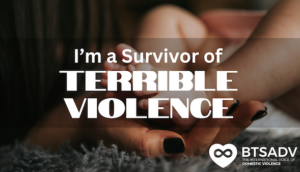By Jenn Rockefeller
Unprecedented times. That is a term so often heard in this midst of this global pandemic.
Children today have to face returning to school in a virtual world. For many states, the return to school has begun this month. Many changes abound – school districts need to figure out logistics on how they are going to teach, when and if they will physically return to schools this fall and what safety measures will be taken.
For children who have witnessed domestic violence, returning to school in a virtual world means being at home with one or both parents who are abusive. For many, school was an escape of sorts – a place they felt safe. Their support system was made up of their teachers and peers when they were physically at school. Now, children are isolated and face the reality that they now have a lack of support.
How can we support children through this?
My daughter has entered high school. She is a freshman. She had her sights set on joining the cross country team this fall, just like she did in the eighth grade. She won’t get to experience that, nor will she experience what freshman year in high school is supposed to be like – lockers, changing classes, friends, cafeteria food, and walking the hallways. She recently told me that she was not looking forward to the start of school. A little bit of back and forth in the conversation, and I learned that she won’t be with friends or have that in-person learning experience with teachers.
That’s what children need–the in-person experience. Right now, they are feeling isolated and alone. So how can we, as the healthy parent, help our children through this? How can we support them?
- Listen – If they want to open up about their feelings, just listen. Many times, you don’t even need to say anything in return. Sometimes, just letting your child know you will listen to them will impact them more than you know.
- Reactions – If you have more than one child, each child’s reaction to the pandemic may vary. Some will pull away emotionally and refrain from talking about their feelings. Some will be more talkative. Some will want more attention from you. You can support your children by giving them the space they need or by giving them the attention they are craving. Let them know you will be there for them in whatever capacity they need.
- Time – Whether you are a prominent caregiver in your children’s lives or you do not live with them, giving them your time and attention is vital. They need quality time with you, no matter what form that takes. My children do not live with me, and therefore finding different ways to connect is essential. Lately, we’ve taken to spending time video chatting via Facebook Messenger (they are on Messenger for Kids). Giving children your undivided attention shows them that you are interested in who they are as people and want to know what goes on with them.
- Reassure – I often let my children know that I am staying as safe as I can. I tell them that I take appropriate measures in doing so. Sometimes, this simple reassurance will help ease a child’s fears.
- Routine – If your children do live with you, creating a routine for them is important. They need to have a sense of normalcy and predictability in their lives. What time do they wake up, shower, and begin their school work? If you have to, create an itinerary of sorts for them to follow.
- Engage – You can also support your children by keeping them engaged in activities like reading, playing board games, being outside (in your backyard, or nature walk while practicing proper social distancing), and other fun activities when they are not doing their schoolwork.
But what if you do not have custody of your children and they are living with the other parent? What then? How do you help your children who have to learn virtually with an abusive parent at home? They don’t have an immediate support system to go to. You become their source of support. As previously mentioned, the in-person learning environment that schools provide was their support system. That was their way of escaping what they were going through at home. When you are not physically there to be your child’s support system, you need to find creative ways to support them. Writing letters, playing online games with them, video chats, and phone conversations are just a few ways you can support your children. Continue to be the one person they can count on in these unprecedented times.
If you or someone you know is in an abusive relationship, there is help. You can visit the Break the Silence Against Domestic Violence website at www.breakthesilencedv.org or chat with one of our helpline advocates at 855-287-1777.
========
Share Your Story
Sharing our stories can be incredibly empowering while also helping others connect with survivors who have similar experiences. If you are inspired to share your story with us, submit here. You can choose to remain anonymous.
You can also donate to BTSADV here.
Photo Credit: Rachel, via Unsplash









